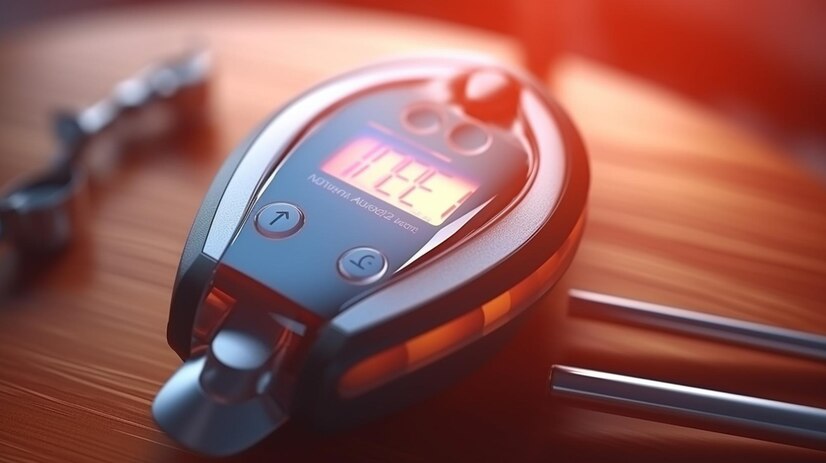Recent research revealed the link between the duration of mobile phone calls and the increase in risks of hypertension or high blood pressure.
Professor Xianhui Qin of Southern Medical University in Guangzhou, China led this peer-reviewed study. It was published in the European Society of Cardiology (ESC)’s journal: European Heart Journal – Digital Health.
According to the professor, what matters for heart health is the time people spend in conversation on their mobile phones. Their findings showed that 30-minute or longer mobile phone conversations can increase the risk of hypertension to 12%. Conversely, years of using a hands-free setup did not affect the likelihood of developing hypertension.
He emphasized: their findings suggest that talking on a mobile may not affect the risk of growing blood pressure as long as weekly call time is kept below half an hour. One needs a greater number of research to repeat the same results, but until then, it seems quite strong and pronounced that one needs to keep the usage of mobile phones at bay.
Previous Studies

Preceding research has shown the links between blood pressure and the use of mobile phones. The results showed that there was a steady increase in blood pressure post-exposure in the short term to the low levels of radiofrequency energy these electronic gadgets emit.
However, these studies on the use of cell phones and use and blood pressure were inconsistent, potentially because they take into account texts, calls, gaming, and so on. Hence, the correlation between the use of mobile phones and the risk of hypertension remained uncertain.
The Recent Research
In this recent research on genetic susceptibility, Mobile phone calls, and new hypertension: results from the 212 046 UK Biobank, the participants intended to examine the correlation between mobile phone calls (making and then receiving) and also new-onset hypertension in the common population.
The researchers utilized UK Biobank data. They examined around 212,046 adults with no hypertension. They aged between thirty-seven to seventy-three years. Each reported how they use their phones to make and receive calls, including how long they have been using their phones, hours of use every week, and call preference between hands-free devices or speakerphones.
The researchers gathered the participants’ information with the help of a touchscreen questionnaire (self-reported) at the baseline. Only those who used their phones to make or receive calls at least once a week were categorized as users of mobile phones. The average age of participants was 54 years, and 88% were mobile phone users.
The researchers then analyzed the correlation between their usage of mobile phone and new-onset hypertension after looking at the physical indicators like “…sex, age, body mass index (BMI), race, family history of education, deprivation, smoking status, blood pressure, hypertension, kidney function, inflammation, blood lipids, blood glucose, and the use of medications to lower blood glucose or cholesterol levels”.
Findings

While in a median of 12-year follow-up, the development of hypertension was perceived in 7% or say a number of 13,984 participants. Mobile phone users had a greater risk of growing hypertension by 7% than those who are non-users. Those who spent around 30 minutes or more a week on cell phone calls had a higher chance of growing the new-onset high blood pressure by 12% than those who spent lower time on phone calls. These outcomes were no different for men and women.
Conclusion
The researchers explained that the study is observational. In other words, the research can’t establish the cause, such as whether the participants’ lifestyle factors, such as high-stress jobs, increase their blood pressure.
However, researchers suggested three “possible” reasons for their findings:
- The association between increased use of mobile phones and worsening mental health;
- The possibility of radiofrequency (RF) electromagnetic radiation (EMR) causing health problems; and
- The act of holding a mobile phone over the ears.
The researchers added the last possible reason is unlikely, but they still found higher hypertension in mobile users who used the setup, which will be hands-free.
The researchers also highlighted that their sample doesn’t represent the wider population. They predominantly observed White, middle-aged people who are healthier than the UK general population. They also acknowledged that although the findings of the results came out just recently, it started over a decade ago, so mobile phone usage could have changed.
How To Prevent And Manage Blood Pressure?

According to the National Institute of Health, controlling blood pressure with medications and proper treatments is necessary. It’s one of the cost‐effective ways to reduce premature cardiovascular diseases, such as heart disease and stroke.
To reduce costs, take advantage of promotional events like Coupons for Cialis or free or discounted government medications available for almost everyone. There are also other programs tailored for the economically marginalized population.
Besides seeing a doctor and taking prescribed medicines religiously, the Centers for Disease Control and Prevention (CDC) also recommended following healthy living habits. These include eating a balanced and healthy diet, maintaining a healthy weight, staying physically active, avoiding smoking, limiting alcohol consumption, and getting enough sleep.
Final Thoughts
This recent research has great significance since almost 75% of the global population aged ten and over uses mobile phones. Among these users are 1.3 billion adults who suffer from hypertension, the leading cause of premature death worldwide.
Read Also:




























